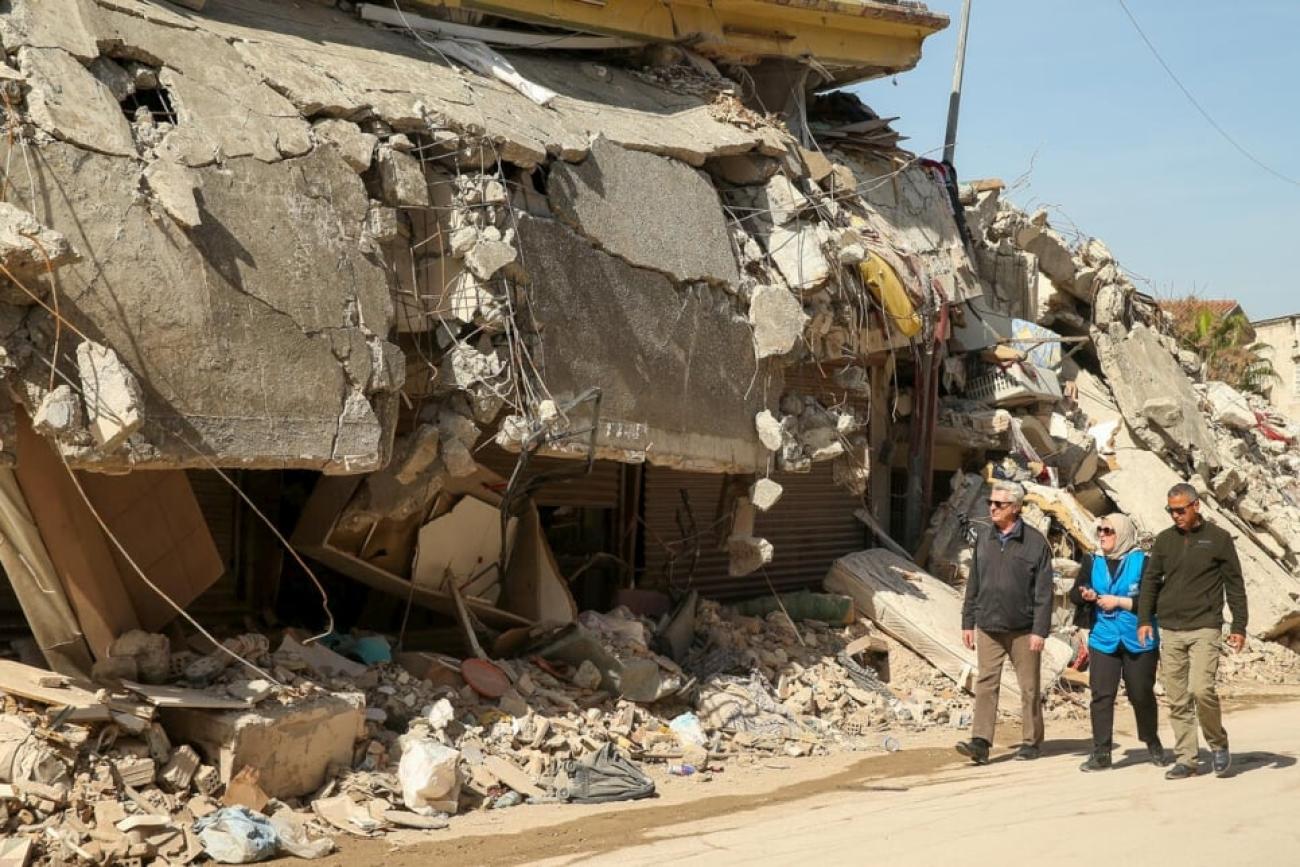UN High Commissioner for Refugees, Filippo Grandi, concluded a five-day visit to earthquake-devastated areas of Syria and Türkiye, visiting survivors and affected people, as well as humanitarian staff on the ground providing urgent support to people in need.
The earthquake has claimed 54,000 lives in the two countries and caused massive destruction to an area where more than 23 million people live, including many who had been displaced either within Syria or across the border into Türkiye as refugees during 12 years of conflict.
“The level of destruction and devastation is shocking and in many places it is apocalyptic,” Grandi said. “Millions have suffered loss, injury and trauma, and many others have been displaced by this tragic and terrible event.”
While surveying the damage, Grandi also reviewed and discussed the immediate humanitarian response with authorities in the two countries. In addition to Ankara, Grandi visited Hatay and Gaziantep in Türkiye. In Syria, he visited Latakia, Hama, and Damascus and undertook a cross-border visit to earthquake-affected and other displaced people in northwest Syria.
UNHCR and humanitarian partners, especially national and local responders, continue to step up their assistance in the two countries, something that requires greater and urgent international support. Since the earthquake, UNHCR alone has delivered tens of thousands of tents, beds, mattresses, thermal blankets and other desperately needed support.
“The needs on the ground in both countries are enormous and the response must be better resourced,” Grandi added. “While it is critical to think about and support longer-term efforts, much more humanitarian aid and early recovery resources are needed so that people can begin to rebuild their lives and livelihoods.”
In Türkiye, the High Commissioner met Turkish and Syrian families who had lost everything in the earthquake and were now, along with thousands of others, accommodated in a container camp. They expressed their gratitude to the authorities for the help and noted how the humanitarian community and the Turkish authorities are providing assistance for all in need, irrespective of citizenship or status.
In Syria, Grandi met families in collective shelters who had been displaced multiple times – first by the crisis in Syria and now by the earthquake. Their plight exemplified the extraordinary hardship that 12 years of conflict have had on the Syrian people and the infrastructure of the country, including basic services like water and electricity. More than 90 per cent of people in Syria today live below the poverty line.
“I have been coming to Syria regularly for almost 20 years, but never have I seen such levels of deprivation and desperation — everywhere I have been. It is unconscionable that so many people have been left with so little for so long. They need and deserve much more support. Stepping up our relief and early recovery activities throughout the country today is a humanitarian imperative. Access to all those in need wherever they are is critical.”
The UN has asked for $1 billion for the humanitarian response to the earthquake in Türkiye and nearly $400 million for Syria. UNHCR’s part of the response plans totals $201 million. Türkiye appeal is funded only 12.9% as of today.


















